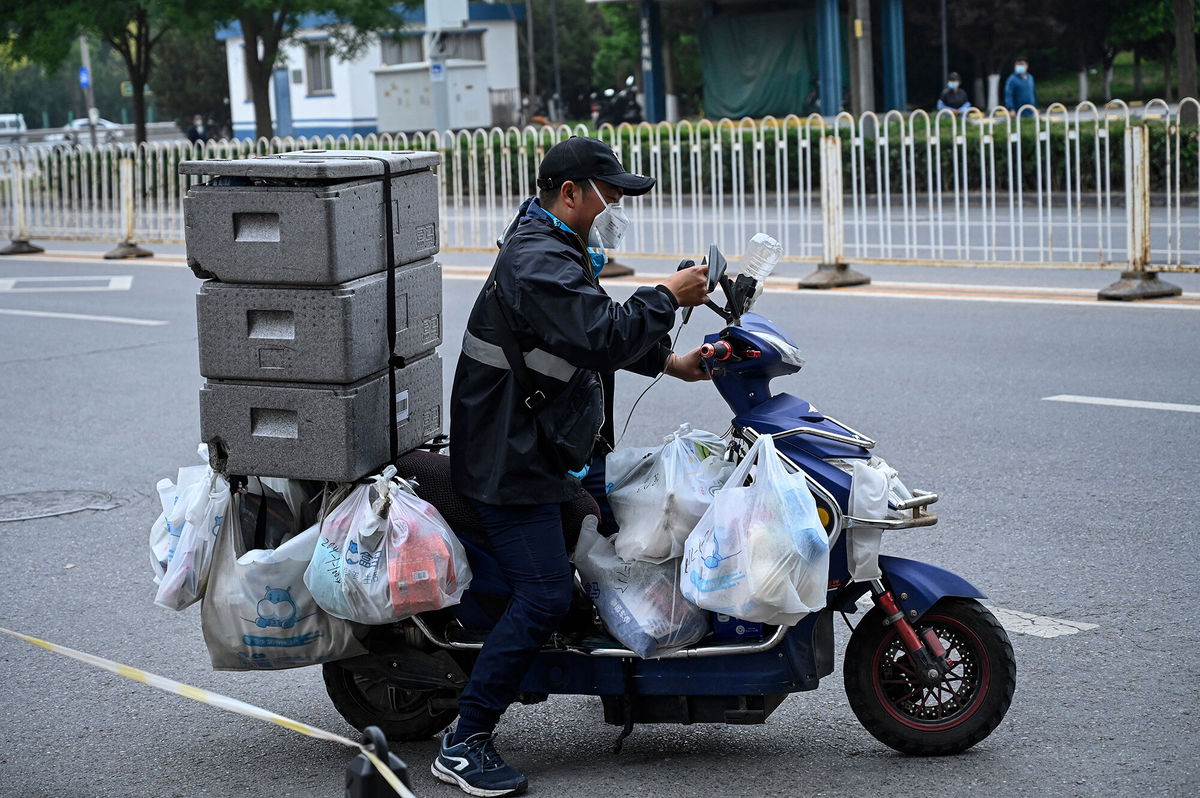Chinese consumers are stuck at home but still spending a ton, Alibaba says

China's economy has slumped as Covid-19 cases surged in the world's most populous country. But Chinese consumers stuck at home are still spending.
By Paul R. La Monica, CNN Business
China’s economy has slumped as Covid cases surged in the world’s most populous country. But Chinese consumers stuck at home are still spending.
E-commerce giant Alibaba reported better-than-expected earnings and sales for its most recent quarter Thursday.
Shares of Alibaba were up nearly 15% in late morning trading after the company reported that revenue rose 9% from a year ago, topping analysts’ forecasts. Alibaba said the strength was due to solid online and mobile shopping demand as well as a 12% jump in sales from its massive Alibaba Cloud unit.
Alibaba said that it now has more than 1 billion active customers in China, the first time the company has surpassed that milestone. Alibaba has more than 1.3 billion customers worldwide.
Alibaba charman and CEO Daniel Zhang said in a press release that Alibaba was able to post solid results “despite macro challenges that impacted supply chains and consumer sentiment.”
The company hopes supply chain disruptions could soon be ending. Alibaba chief financial officer Toby Xu said during a conference call with analysts Thursday that “we certainly are seeing signs of improvement going into the month of May” even though it will still “take time” for outstanding shipments to be delivered.
Xu added that “many merchants may need to invest in order to grow their revenues,” especially as retailers prepare for Alibaba’s mid-year shopping festival on June 18.
Shift in Chinese consumer shopping habits
Worries about the spike in Covid in major Chinese cities remain a major concern. That has led to a shift in how (and what) Chinese consumers are buying, much as it has in the United States and other parts of the world.
“While our user traffic and engagement have remained resilient, patterns of consumption across categories on our platforms have shifted,” Zhang said on the conference call.
He noted that sales in the fashion and electronics categories declined, but “demand for essential supplies” such as food and personal care products “increased significantly with more consumers stockpiling at home.” Zhang said other categories, such as health care, activewear and outdoor products also grew rapidly.
Top US retailers such as Walmart and Target have reported similar trends.
But Alibaba faces other significant challenges. Regulators in China have scrutinized its homegrown tech giants more closely in the past few years. And many major Chinese companies trading in the United States could be forced to delist from the New York Stock Exchange and Nasdaq.
Ridesharing app Didi is in the process of doing so. Luckin Coffee, a competitor to Starbucks, has already been delisted, although the company has staged an impressive comeback in China following accounting issues.
Tension between China and the US remains high as well. President Biden has continued to talk tough about possible military intervention in China if it attacks Taiwan.
However, Biden and US Treasury Secretary Janet Yellen have hinted at rolling back some of the more onerous Trump-era tariffs on Chinese goods.
Other major Chinese companies have also reported more upbeat results lately as well. Alibaba rival JD.com recently said that sales for its latest quarter topped forecasts. And Chinese search giant Baidu reported better-than-expected results Thursday thanks to growth in its cloud and artificial intelligence units.
Shares of Baidu rose 10% Thursday. But its stock is still down more than 10% for the year. Alibaba, JD and other top Chinese techs such as online retailer Pinduoduo and electric car companies Nio, Xpeng and Li Auto are all still down sharply in 2022 despite recent rebounds.
The-CNN-Wire
™ & © 2022 Cable News Network, Inc., a WarnerMedia Company. All rights reserved.